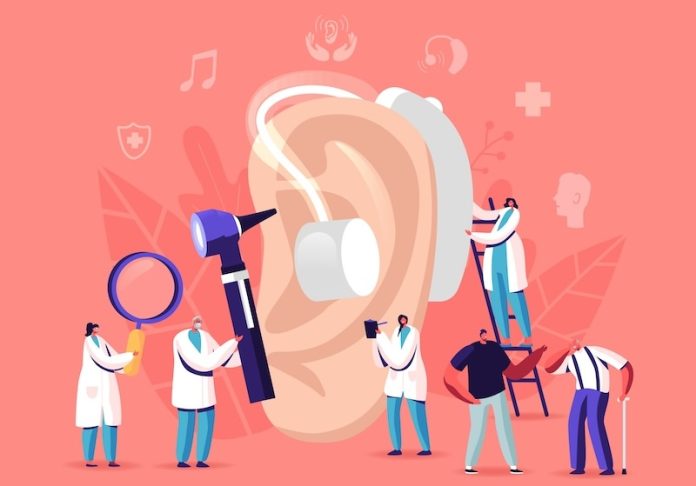
Tinnitus, often described as ringing in the ears, affects millions of people worldwide. It’s a condition where you hear sounds that are not caused by an outside source.
People might hear ringing, buzzing, hissing, or whistling sounds, which can be continuous or come and go.
It’s a common problem, particularly affecting older adults, but what exactly causes it? This review will explore the common causes of tinnitus, supported by recent research findings, all explained in plain language.
Many factors can trigger tinnitus, but one of the most frequent causes is exposure to loud noise. This can include working in noisy environments like construction sites or factories, or frequent attendance at loud concerts.
Such noise exposure can damage the tiny hair cells in the inner ear that help transmit sound to the brain. Once these hair cells are damaged, they can send incorrect signals to the brain, which might be interpreted as tinnitus.
Studies have consistently shown that reducing exposure to loud noises can help decrease the risk of developing tinnitus.
Aging is another significant factor. As we grow older, the cochlea, a part of the inner ear involved in hearing, naturally begins to wear out. This deterioration can also harm the hair cells, leading to similar problems as those caused by loud noise.
Research has indicated that age-related hearing loss is one of the leading contributors to tinnitus among the elderly.
Health conditions can also play a role. Issues with blood circulation, such as high blood pressure and blocked arteries, can increase the risk of tinnitus. The ear needs a good blood supply to function correctly; any disruption can lead to hearing abnormalities, including tinnitus.
Diabetes, thyroid problems, and neurological disorders like multiple sclerosis have also been linked to tinnitus. Recent studies suggest that managing these conditions well may help alleviate tinnitus symptoms.
Medications can sometimes contribute to tinnitus. Aspirin in large doses, certain types of antibiotics, anti-inflammatory drugs, and antidepressants are known to occasionally cause tinnitus as a side effect.
Research has shown that the risk of tinnitus increases with the dosage and duration of medication use. If tinnitus develops after starting a new medication, it’s important to consult with a healthcare provider, as an alternative medication may be needed.
Earwax buildup is a simpler but common cause. Excessive earwax can block the ear canal, leading to hearing loss or irritation of the eardrum, which can cause tinnitus. Regular cleaning of the ears to remove excess wax can help prevent or reduce the problem.
Stress and anxiety are increasingly recognized as triggers for tinnitus. Stress doesn’t directly cause tinnitus, but it can exacerbate it.
Research has demonstrated that stress management techniques such as relaxation exercises, meditation, and counseling can be effective in reducing the severity of tinnitus.
In some cases, the exact cause of tinnitus remains unknown. However, researchers continue to study the condition to better understand how to treat and prevent it.
For instance, recent advances in understanding how the brain processes sounds may lead to new treatments in the future.
While tinnitus can be a persistent and annoying condition, understanding the common causes can help individuals take preventive measures and seek appropriate treatments.
Reducing exposure to loud noises, managing health conditions, checking medications, keeping ears clean, and managing stress are all steps that can potentially help manage or reduce the impact of tinnitus.
In conclusion, tinnitus is a complex condition with various triggers. By recognizing the common causes and underlying conditions associated with tinnitus, individuals can better manage their symptoms and improve their quality of life.
If you care about hearing loss, please read studies about antibiotic drug that can lead to hearing loss, and whether you should get an hearing aid or see a specialist.
If you care about dementia, please read studies about how the Mediterranean diet could protect your brain health, and these antioxidants could help reduce dementia risk.
Copyright © 2024 Knowridge Science Report. All rights reserved.



